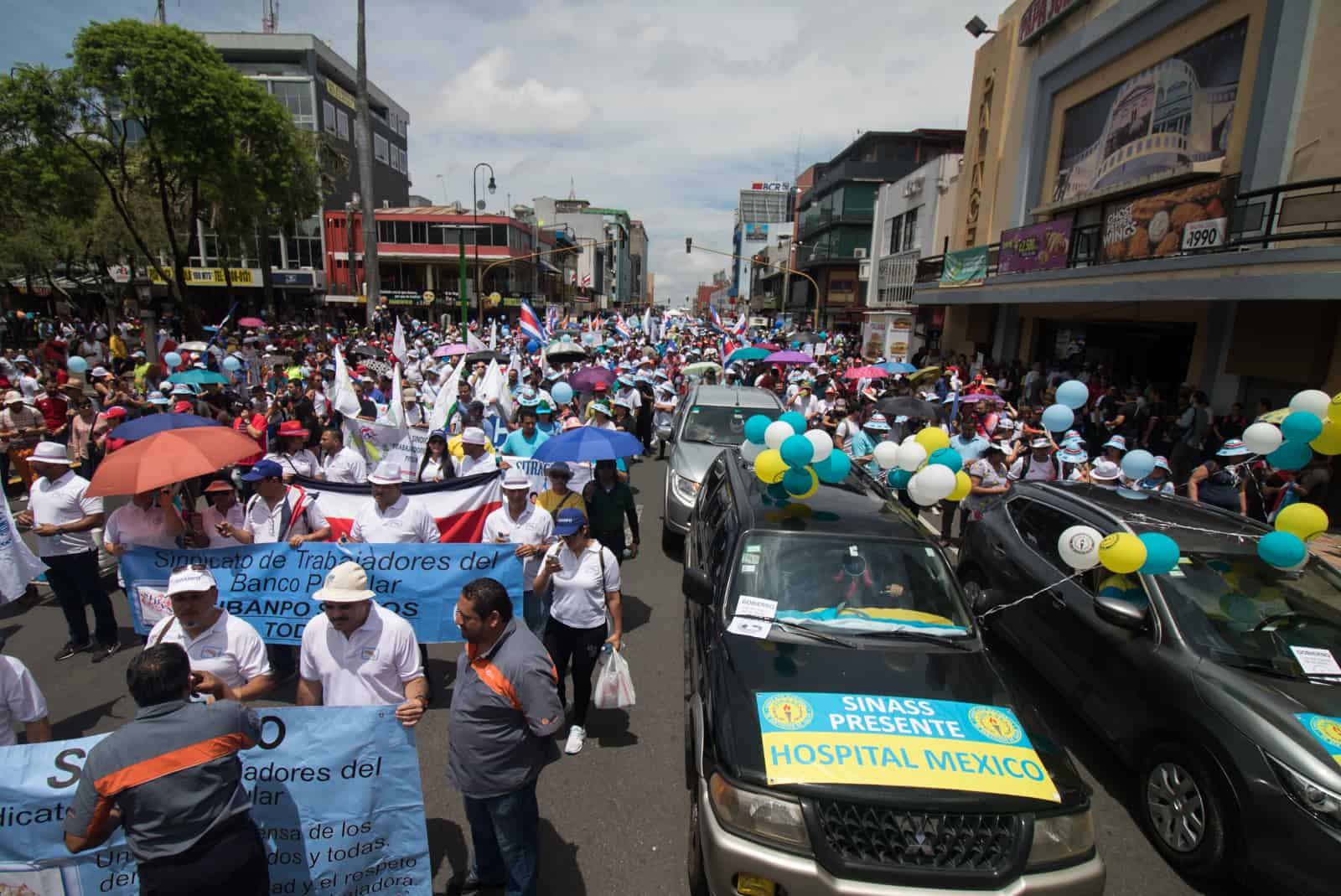Costa Rica’s Legislative Assembly will discuss a bill that could affect the legality of certain public-sector strikes.
Bill 21.049, titled “Law to provide legal certainty about strikes and their procedures,” seeks to modify several criteria for a strike to be declared legal and could be voted on after a debate on the assembly floor this month, according to Teletica.
Drafted in October 2018 — during nationwide demonstrations against fiscal reform — and presented to a special committee in December, the bill has regained public interest in the face of health-sector strikes.
If passed, Bill 21.049 and similar legislation would better define what constitutes essential services in Costa Rica, shorten the time to issue a verdict on a strike’s legality, and penalize those who block access to public services.
Article 375 of Costa Rica’s Labor Code already prohibits “strikes in public services,” though there are exceptions. In addition, Costa Rican Labor Courts must rule on a strike’s legality, a process which can take days or weeks.
“Continuity in the provision of public services is a fundamental principle of Public Administration and a citizen’s right,” Bill 21.049 reads.
“The Costa Rican state is obliged to guarantee that continuity, especially in essential services such as: hospitals, electricity, water and fuel supply, police forces, air and sea controllers, school cafeterias and emergency services, among others.
“Continuity in the provision of these services should not be interrupted under any circumstances.”
Opponents of the bill argue that the ability to protest is an essential democratic right.
“The project would seek to intimidate strikers from not exercising their rights, as it contemplates retroactively lowering wages if the strike is declared illegal,” reads a response from the High School Teachers Association (APSE).
The Costa Rican Chamber of Industries (CICR) said in a Monday statement that the legislation “must be approved” in order to “restore legal security to national and foreign investment, and to Costa Rican society.”






